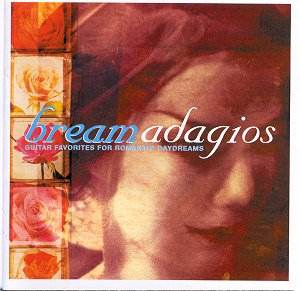 Composer: Franz Liszt
Composer: Franz Liszt
Works: Les cloches de Genève, Funérailles, Eroica, Nuages gris, Fantasie und Fuge über das Thema B-A-C-H, Erstarrung, Aufenthalt, Ave Maria, Rapsodie espagnole
Performers: Zeynep Ucbasaran (pianoforte)
Recording: 7th, 14th, 17th November, 8th, 15th December 2001 at Abravanel Hall, Academy of the West, Santa Barbara, California
Label: EROICA JDT 3092
Franz Liszt, a titan of the Romantic era, imbued his compositions with not only technical prowess but also profound emotional depth. This CD featuring Zeynep Ucbasaran offers a glimpse into Liszt’s vast oeuvre, particularly through works like “Les cloches de Genève” and “Funérailles,” both of which carry rich historical significance. The former, part of the “Années de Pèlerinage,” evokes the tolling of bells, while the latter serves as a poignant tribute to the memory of friends lost, particularly reflecting Liszt’s responses to death and mourning. Ucbasaran’s interpretations invite listeners into this world, yet they sometimes fall short of the profound expressiveness that these pieces demand.
Ucbasaran displays a commendable technical facility across the varied terrain of Liszt’s keyboard demands. Her execution of the “Fantasie und Fuge über das Thema B-A-C-H” showcases her secure technique and structural clarity, as she navigates the intricate textures with commendable precision. The recording quality is rich and vibrant, allowing the tonal nuances of her chosen pianoforte to resonate effectively throughout. However, there is a noticeable shift in perspective as she transitions into “Rapsodie espagnole,” which creates an unsettling contrast that distracts from the musical flow. This inconsistency in sound engineering detracts from the overall listening experience, leaving one to ponder the choices made in the production process.
While Ucbasaran’s performances of “Funérailles” and “Les cloches de Genève” are earnest, they lack the lyrical floating quality that characterizes the interpretations of seasoned Liszt specialists like Alfred Brendel or Vladimir Horowitz. For instance, Brendel’s recording of “Funérailles” reaches blistering emotional heights, filled with a sense of transcendence that Ucbasaran’s interpretation, though technically sound, often feels dogged in comparison. Similarly, her handling of the Schubert transcriptions reveals a struggle to maintain the melodic line, notably in “Erstarrung,” where the accompaniment sometimes overpowers the delicate beauty of the melody. The warm execution of “Ave Maria” hints at potential, yet it too yearns for a more filigree touch to elevate it beyond mere competence.
Ucbasaran’s journey through Liszt’s repertoire indicates a promising future for this young artist, provided she continues to refine her palette of tonal colors and deepen her interpretative insights. Engaging more deeply with the textural subtleties and the emotional landscapes of Liszt’s music will be crucial for her artistic evolution. An exploration of other composers like Schumann or Debussy could further aid in expanding her interpretative horizons. The potential for growth is evident, and one hopes to hear her progress in future recordings, as she develops a more nuanced understanding of the art of piano performance.
Ucbasaran’s disc presents a commendable effort, yet it ultimately offers a more limited perspective on Liszt than one might glean from the interpretations of established masters. The technical skill is apparent, but the emotional and expressive depth necessary to convey the full breadth of Liszt’s genius remains underexplored. With further development, Ucbasaran could emerge as a significant voice in the realm of Lisztian performance, but this recording may not serve as the definitive introduction to Liszt’s remarkable musical landscape.



